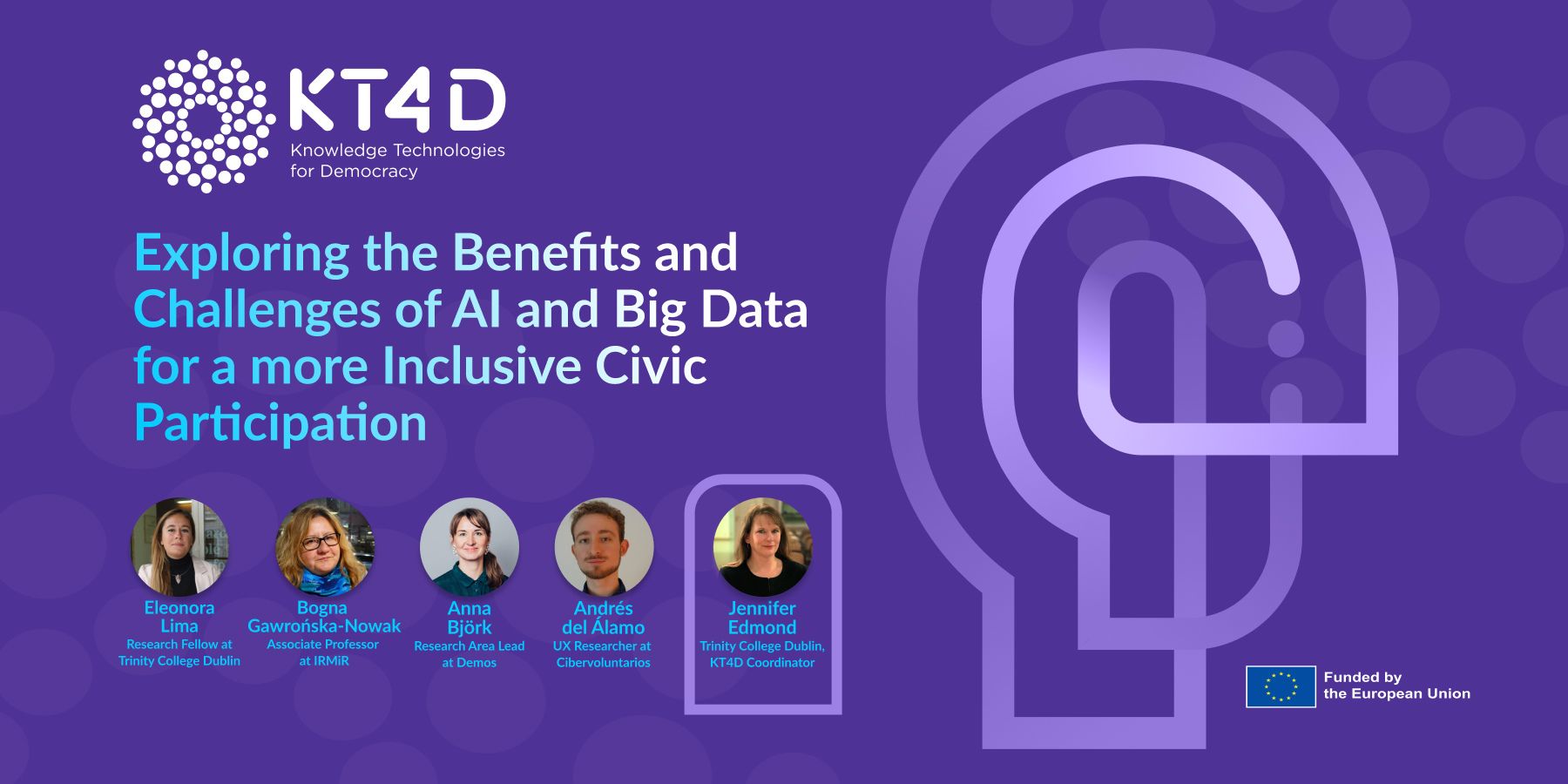
In an era marked by the profound intertwining of Artificial Intelligence (AI) and Big Data into our daily lives, their influence on democratic governance carries profound significance. These technological advancements possess the potential to completely reshape how societies participate in democratic processes, opening doors to enhanced governance while simultaneously presenting notable challenges. The Knowledge Technologies for Democracy (KT4D) initiative is dedicated to harnessing the capabilities of these Knowledge Technologies in a manner that prioritises human perspectives and ethical principles. It advocates for technology that genuinely serves the interests of individuals while safeguarding their rights and values.
On Monday, October 9, 2023, KT4D hosted its inaugural webinar titled 'Exploring the Advantages and Complexities of AI and Big Data for Enhanced Civic Participation.' During this event, five panellists presented four distinct Use Cases.
If you’re interested in watching the webinar you can find the recording on their website, click here.
The webinar was free to attend and drew a diverse audience, including researchers, policymakers, civil society organisations, tech professionals, and anyone with an interest in the convergence of AI, Big Data, and democracy.
Hosted by Trust-IT Services, the webinar featured Jennifer Edmond, an Associate Professor of Digital Humanities and Culture at Trinity College Dublin, who also serves as the project coordinator for KT4D. Jennifer delivered an introductory overview of the comprehensive structure of the three-year project, which was initiated in February 2023. Anna Björk, Research Area Lead at Demos Helsinki, underscored the critical importance of ethical perspectives and normative considerations within the realm of technological governance, particularly within the Brussels Use Case context. Andres del Álamo Cienfuegos, a Digital Anthropologist, UX Researcher, Sociologist, and Project Manager at Fundación Cibervoluntarios, presented insights on the Madrid Use Case. He delved into the development of educational materials and video games centred around critical digital literacy and knowledge technologies. Bogna Gawrońska-Nowak, Associate Professor at the Instytut Rozwoju Miast i Regionów, introduced the Warsaw Use Case and provided an overview of the initial results from the recent pilot Use Case meeting in Kraków. Our final speaker, Eleonora Lima, a Research Fellow in Digital Humanities at Trinity College Dublin, discussed the importance of enhancing self-awareness in academic and industrial software development in relation to the Dublin Use Case.
The webinar concluded with an interactive Q&A session that engaged many participants. Attendees had the chance to express their interest in the initiative and above all it represented an excellent opportunity for all to gain insights into KT4D and engage in discussions with experts.